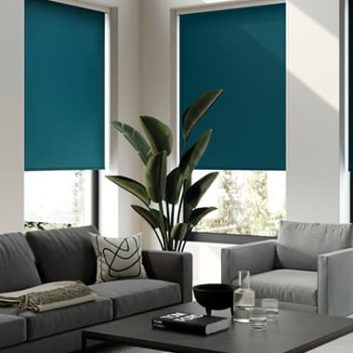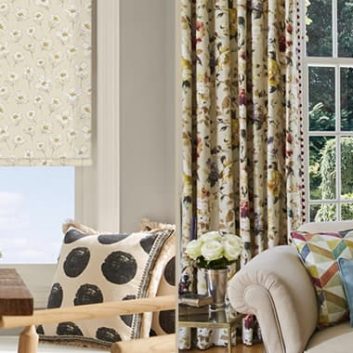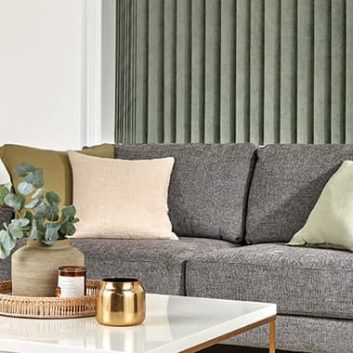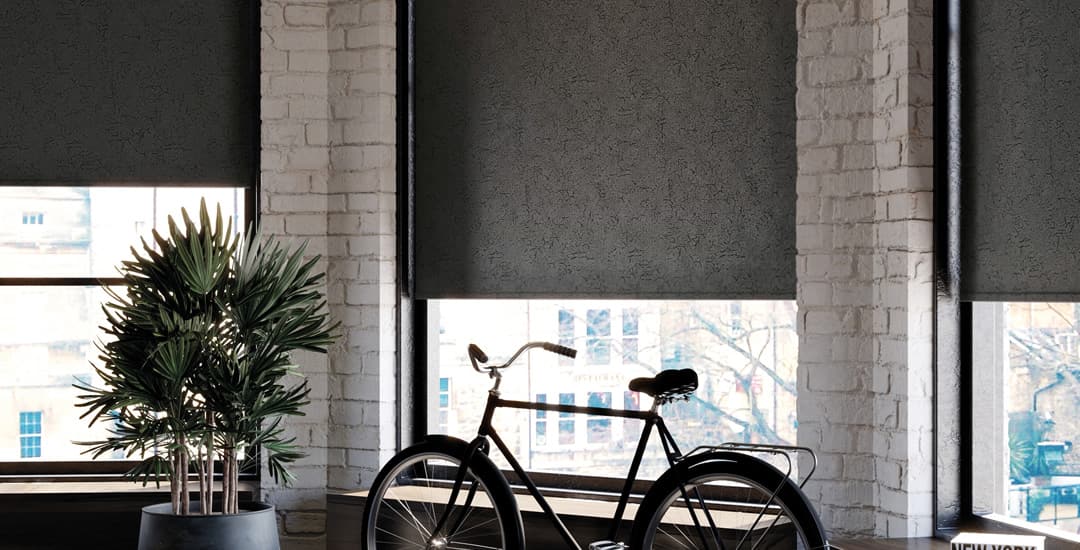
What blinds don’t go mouldy? Waterproof blinds don’t absorb water or harbour moisture, and so these won’t grow mould in theory, although if they’re dirty enough to have developed a film of muck that itself is capable of hosting life, they might grow mould on this!
Other (non-waterproof) window blind materials will only potentially grow mould if they get wet regularly and/or are used in a particularly damp or humid environment like the bathroom or kitchen; used appropriately in rooms that aren’t humid or damp, mould on blinds should never be a problem. This blog post will answer some of our more frequently asked questions about the best window blinds to avoid mould, cleaning blinds to prevent or remove mould, and everything else you might potentially need to know.
What blinds don’t go mouldy?
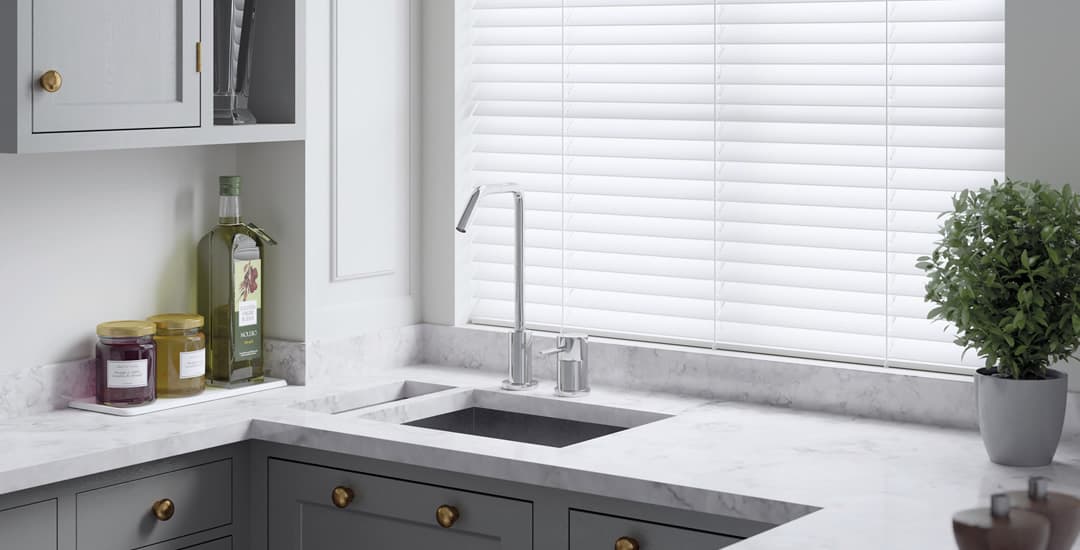
PVC or vinyl roller blinds or vertical blinds won’t grow mould as a rule, because they’re waterproof; and so, can be used even in damp or humid rooms. However, you should still clean waterproof blinds on a semi-regular basis (and allow them to open fully to dry out if relevant now and then too) to prevent a film from forming on the blind that might itself host organic materials that could host mould on its surface.
As a broad rule, blinds made from water resistant and particularly, fully waterproof materials are those least likely to grow mould.
This means that as well as PVC or vinyl roller blinds and vertical blinds, your potential options expand to include Venetian blinds (made from enamel-coated aluminium) and faux-wood blinds, made of rigid waterproof PVC. Bear in mind though that the lift cords and ladder tapes of faux-wood and Venetian blinds aren’t always 100% waterproof, although they are treated with a special mould-resistant coating.
Used in a dry environment, even non-waterproof blinds shouldn’t grow mould either; but if exposed to damp over a period of time, non-waterproof blinds like polyester roller blinds, Roman blinds, wooden blinds, and day and night blinds could potentially grow mould.
How do I stop mould growing on my blinds?
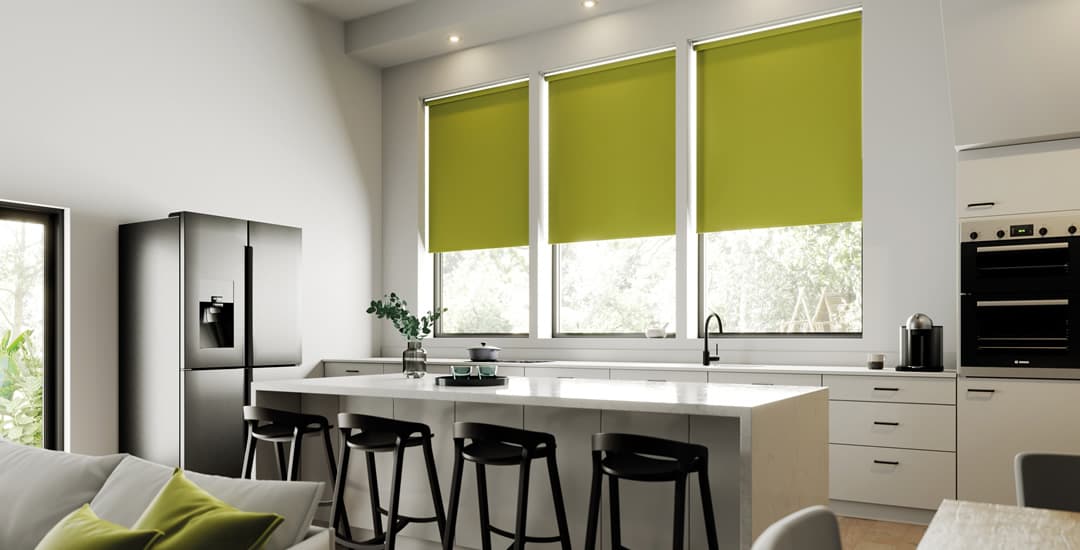
There are quite a few things you can do to greatly reduce the risk of mould growing on your blinds, including:
- Using the correct blinds for the environment they’re in; essentially, using only waterproof blinds in kitchens, bathrooms, or any rooms that may become damp or excessively condensated.
- Ensuring your home is well ventilated, opening windows regularly to air rooms out and allow air to circulate, and using a dehumidifier too if required.
- Clean your blinds as needed; ideally once a week, using a duster or soft cloth on non-waterproof blinds or wiping them off with a lightly damp cloth if required. For waterproof blinds, you can use a mild soap and water solution to remove grease and dirt if your blinds get a little dirtier!
- Always dry your blinds thoroughly if you wash them or get them wet whilst cleaning them; and if your blinds get wet due to condensation or humidity, allow them to air out and dry thoroughly afterwards.
- Use mould and mildew-resistant cleaning products on your blinds, but do check that they’re safe to use on the type of blinds you have!
Does keeping blinds closed cause mould?
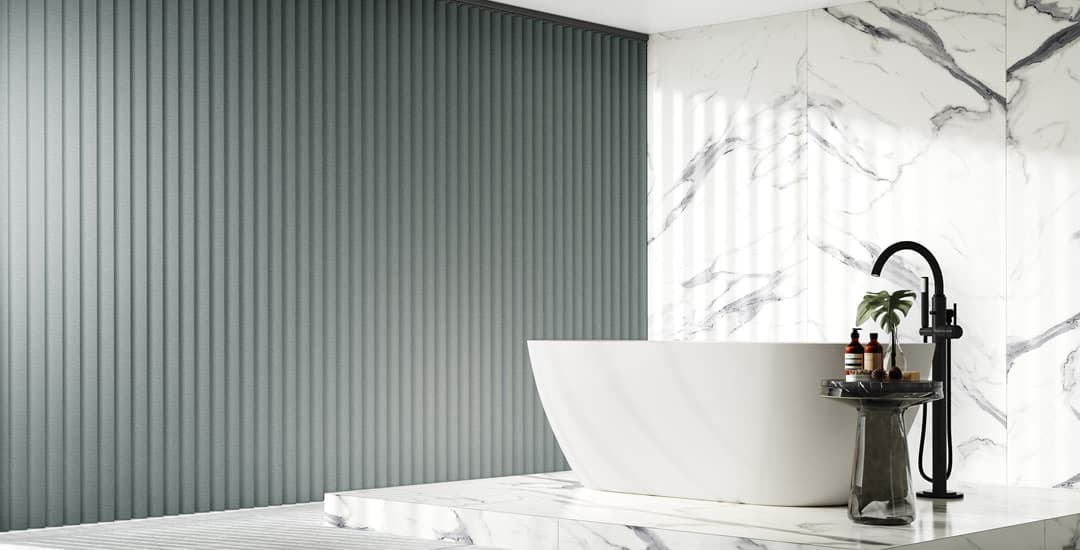
Keeping your blinds closed all the time doesn’t necessarily cause mould, but if the room has a higher-than-normal level of atmospheric dampness or condensation and never really has the chance to air out and get any light, darkness can contribute to the growth of mould and allow mould colonies to thrive.
However, keeping your blinds closed/the room dark will not in and of itself cause mould; it is just one of a set of conditions that can contribute to mould growth.
Does vinegar stop mould coming back?
Vinegar is often touted as something of a wonder-cleaner in terms of its abilities to clean and fix all manner of household problems, but does vinegar stop mould from coming back, and is it good to remove mould from blinds?
Kind of, but to a limited extent. Vinegar is acidic and has antifungal properties, which means it can be used to clean away and remove mould, but so can many other things! Whilst a residue of vinegar remains after cleaning, it might also help to prevent or slow the odds of mould reforming; but this effect isn’t permanent, and vinegar is not effective against every type of mould or mildew that may appear within the home.
Can you use a mould spray on blinds?
It depends on the spray. Some mould sprays contain strong chemicals that might damage the finish of blinds; both waterproof and non-waterproof ones, and both those made of soft fabrics and those made of hard materials.
Check the usage instructions and product label carefully before you buy a mould spray to use on blinds, and always test the spray on a small, innocuous area of the material before you really go in on it! Also, don’t leave the blind drenched in mould removal spray; rinse and dry it off when you’re done, and always follow the spray’s usage instructions.
- For faux-wood blinds, PVC, or vinyl blinds, you can use mould sprays that state that they’re safe for use on plastics and synthetic materials.
- For blinds made of non-waterproof fabrics and also, for real wooden blinds, you might be more limited in terms of the types of sprays you can use, and will need to seek a milder/more gentle solution to avoid damage.
- Finally, whatever spray you use and on whatever material blinds, always clean your blinds off after using the spray (don’t leave it in situ beyond the advised timescales) and dry the blind thoroughly, to remove any residue and prevent any potential damage from prolonged exposure to the anti-fungicide in the spray.

